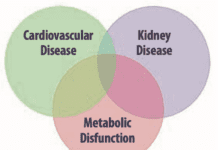An estimated 34 percent of Americans who want to lose weight have tried a weight loss supplement. A new study reviewed 315 randomized controlled trials testing the effectiveness of 14 dietary supplements, alternative weight loss therapies, or a combination of the two. The authors found most of the studies had small sample sizes, short follow-up periods, and flawed study designs, and they led to inconsistent results and conclusions.
Of the 52 studies determined to be of good quality, the researchers found just 16 in which participants in the treatment group lost more weight than those in the placebo group, and no single weight loss treatment worked consistently.
The supplements and treatments evaluated included chitosan, calcium plus vitamin D, chocolate/cocoa, chromium, ephedra/caffeine, garcinia and/or hydroxycitrate, green tea, guar gum, conjugated linoleic acid, Phaseolus, phenylpropylamine, pyruvate, acupuncture, and mind-body interventions.
In the U.S., dietary supplements require little or no testing to show efficacy or safety before being marketed to the public. In an accompanying commentary, the authors strongly recommended regulatory authorities “protect consumers by ensuring accurate and safe marketing claims and preventing promotion of unproven and potentially unsafe products and claims.”
Make sure any supplements you buy are third-party verified. Look for seals from companies like NSF International, United States Pharmacopeia, Informed-Choice and ConsumerLab, or go to their websites for lists of products that have been tested and approved.
























